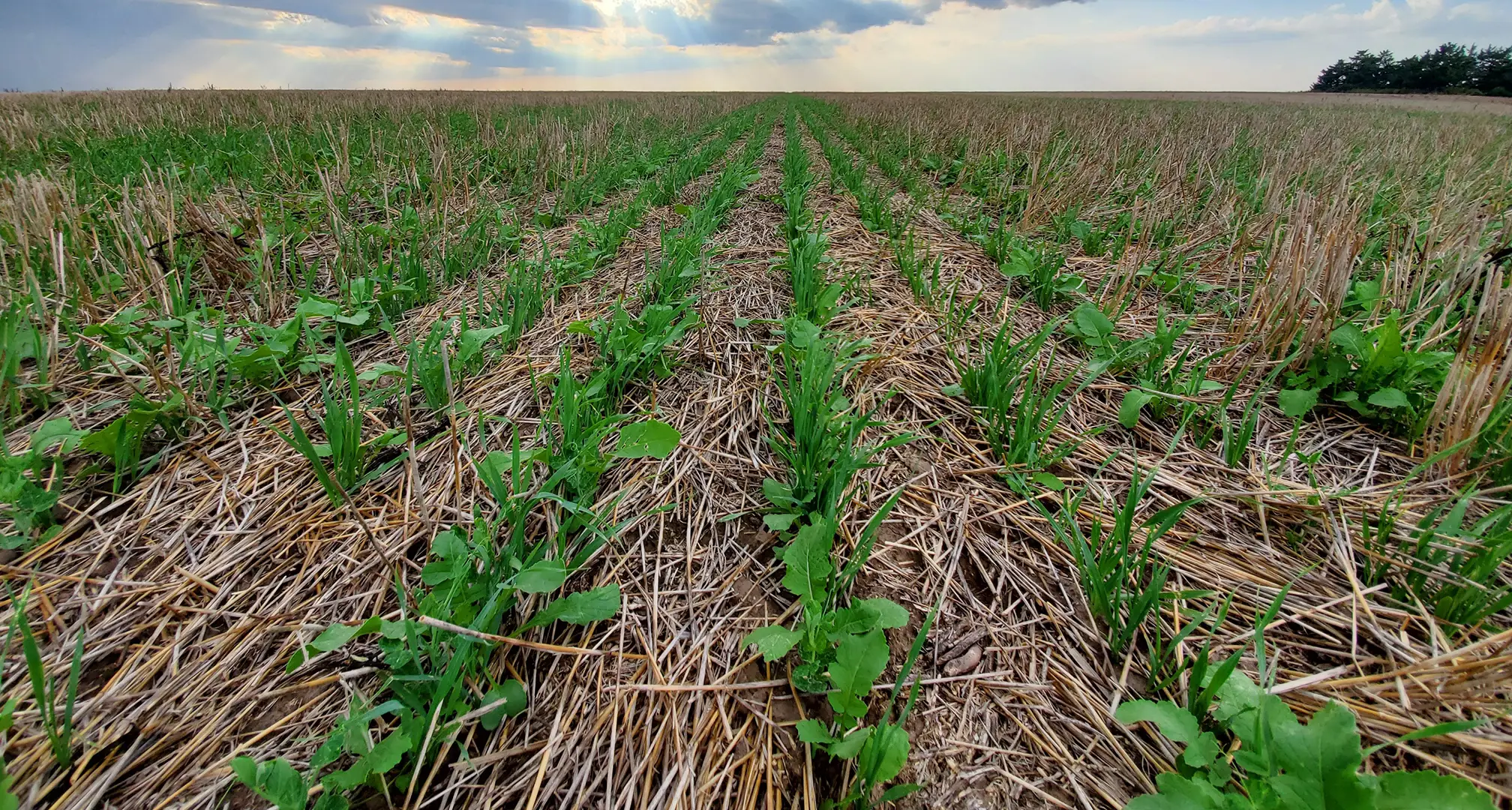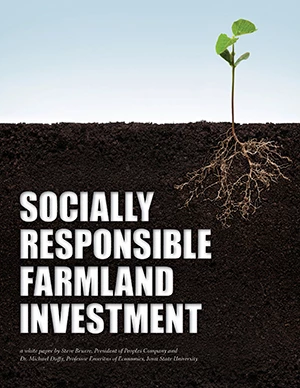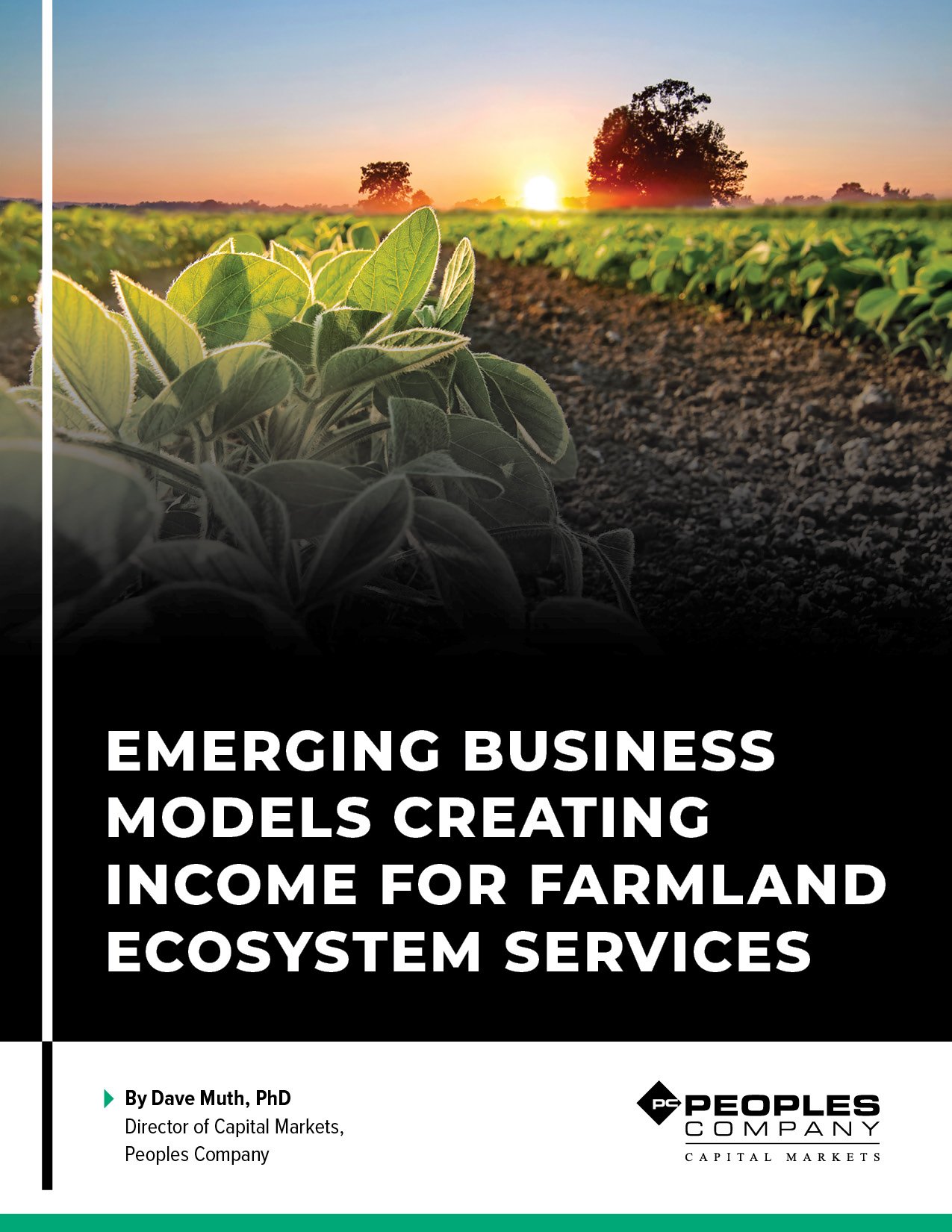Sustainability
CONSERVATION
Peoples Company’s proprietary farm lease addresses the impact of farming practices on soil erosion and water quality at an individual farm level, including tillage practices, crop rotation, permanent seeding (including CRP), cover crops, and the placement of commercial fertilizers.
DRAINAGE
Land Managers seek to work with the natural topography of each asset to reduce soil erosion and compaction. This is a combination of in-field and edge-of-field practices to increase water-holding capacity and filtering as water flows across a farm.
FERTILITY
The amount, timing, and placement of commercial fertilizers is critical to water quality and soil fertility. Peoples Company Land Managers compare crop removal (yields), crop nutrients applied by the operator, and schedule regular soil tests to measure progress toward a goal of balanced soil fertility.
YIELDS
Peoples Company's strategy to merge soil conservation and adequate drainage with balanced soil fertility translates into a probability for increasing crop yields.








Written by Dr. Mike Duffy and Steve Bruere
This thought-provoking paper asserts that changing demographics is driving a trend by next-generation landowners to manage for appreciation and create sustainability through socially responsible farming.
LEARN MORE
Written by Dave Muth, PhD
U.S. agriculture thrives by using advanced technology and resource management to produce essential goods like food, feed, fiber, and fuel. This paper explores how farmland can also generate income from ecosystem services, adding value beyond traditional production.
LEARN MORE

